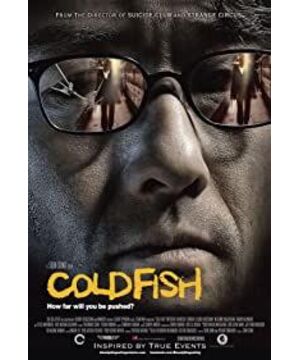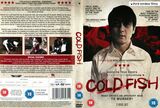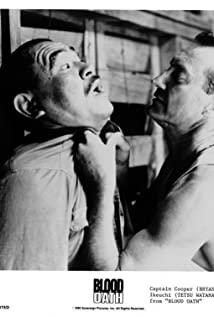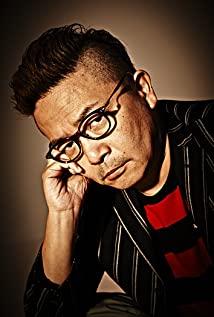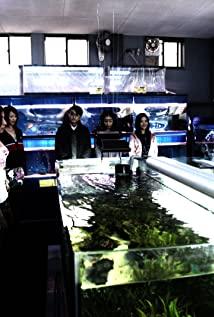Movie reviews on violent themes have always been severely divided into two levels. They say that it is abnormal or distorted, and it can only be regretted for the freshmen, because you have missed a vast and glamorous world in the world of light and shadow.
I don't know much about the evolution of such films in Japan, and I have only watched a few of them, but I have been deeply attracted by their unique style and unfettered imagination.
From Uncle Kitano’s "Fireworks" and "Extremely Evil", to Miike Takashi's "Visitor Q", "Blood High School" and "Killer Aichi" (actually the original manga is more violent), Nakajima Tetsuya's "Confession" and "Abandoned" The Life of Songzi (accompanied by the actual violence of a lifetime), Sekiguchi's "Mobilization of Wife Killing", and Shensaku Kinji's "Battle Royale" are really... countless.
The violent aesthetics in the minds of Japanese directors presents gratifying diversified forms, forbearing, passionate, naked, crazy, absurd, nonsensical... The most rare thing is that they have been able to use this technique proficiently to express deeper The level of connotation may expose humanity or satirize reality, rather than suffering from the so-called "violent addiction." In fact, everyone knows that violence for violence is as boring as sex for sex.
When I was in college, there was a Tibetan guy in our dormitory. He only had a simple and pure evaluation criterion for movies, that is, "Isn't playing hard?" At that time, I thought it was superficial, but now that I think about it, this kind of evaluation standard is actually quite interesting. Maybe every normal man has a fantasy about violence. It exists in his mind as an innate instinct, triggering excess hormones from time to time. Violent movies have become one of the regular ways of catharsis.
Why do we want violence? Because it is our basic need just like sex.
Talk about this movie. From the beginning, the whole film has established an absurd tone. Microwave quick-frozen food, a discordant family of three, a sinister uncle who suddenly appeared, and his coquettish wife. The head of the family is cowardly, frustrated, aggrieved, unable to achieve anything, desires surging, and psychological depression. Similar images are widely seen in various Japanese movies. Whether it is an office worker or a self-employed person, the Japanese seem to be particularly mindful and sensitive to the mentality of men at this stage of life.
Sheben is afraid and desperate for everything in life, and the only safe haven comes from the fantasy in his mind. He imagined that his daughter could be obedient, his wife could be virtuous and industrious, a family of three lived a peaceful life, and as the head of the family, he could dominate all of this. It's a pity that things backfired. After meeting Murata, his life went to the other extreme. This solitary man had to help Murata and Aiko, a demon-like couple, to kill, divide, throw, and lie. When Aiko smiled happily while waving a knife to mutilate the corpse, some nerves in his mind must have broken.
Sheben tried his best to keep himself away from violence, but was dragged into the abyss of violence. He was weak and naturally became a doll at the mercy of Murata. At this time, in his life, Murata was the master, the demon, and the supreme god. In the end, he completely collapsed, and finally took up the weapon of the devil and personally sent the devil into hell. The most ironic thing in the whole film is that a person who resists violence from the beginning to the end has to use violence to get himself free in a real sense. Finally, Shamoto told her daughter that life is pain.
Compared to Shamoto or Murata, I have a deeper impression of Aiko. In fact, she is the only one who is a faithful believer of the god of violence in the whole movie (although Taeko is also prone to masochism, she is really a pediatrician compared to Aizi). Violence is full of irresistible attraction to her. From Murata to lawyers to Shamoto, what she loves is not these three men at all, but their ruling power constructed by violence.
I believe that the children’s shoes who have watched the film will agree. The most shocking passage in the film is undoubtedly that Aiko dismembered Murata, and kissed him with a bloody hand holding Shamoto’s face. He was beaten to death by Shamoto and still pressed on him. Saying "I really want to have sex with you", and finally being stabbed and lying on Murata's stump, crying for her husband. That is no longer a simple visual impact, but a shock that truly strikes your inner world.
Could this be the legendary aesthetics of violence? Some critics say that this movie is very healing. I didn't see where it was cured. From the beginning to the end, I was desperate. Everyone lives in a whirlpool, not death but no relief.
In fact, there is no need to dislike cult movies. Real life itself is more cult, more violent, and more ruthless. We may live in calm and calm, free from violence, but you don't even know whether the next social book will be you. Whether it is seeking excitement, seeking relief, or seeking criticism, violent movies are undoubtedly the best choice for the most pollution-free.
You should have noticed that line of subtitles.
"Adapted based on facts."
View more about Cold Fish reviews


